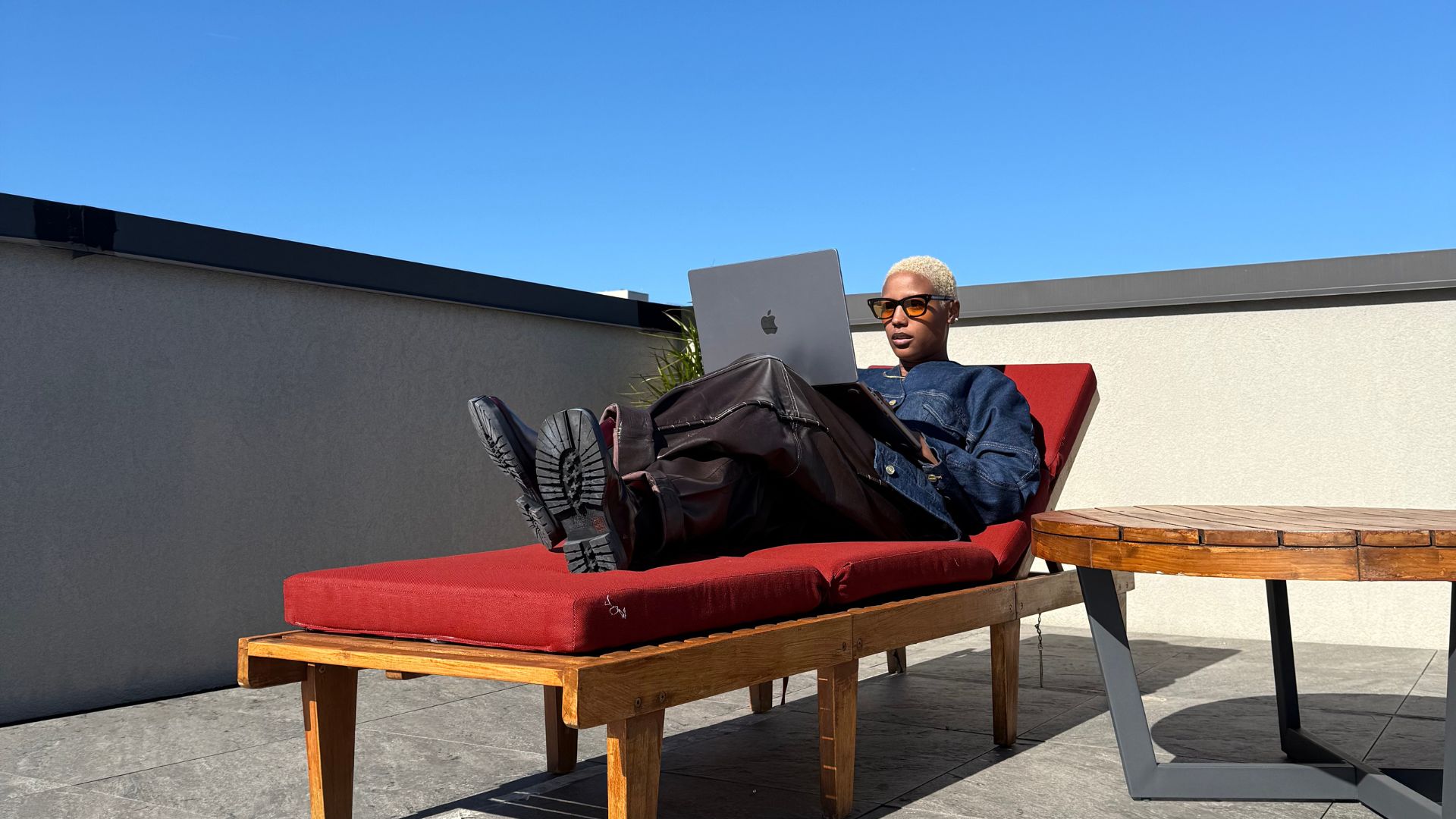I’ve been working remotely since 2018, long before it was trendy or required by a pandemic. After six years as an accounting manager at a startup in DC, I stepped fully into entrepreneurship while raising two kids as a single mom and building CoTripper from the ground up. Since then, I’ve worked full-time contact roles, freelance, and consulted, all remotely, across every version of flexibility you can imagine.
So when the world suddenly celebrated “the future of flexible work,” I felt both validated and frustrated. Yes, remote work is transformative. But no, it isn’t the all-purpose solution people assume it is for single moms.
The Bottom Line: Remote and hybrid work offer single moms flexibility we’ve never had before. But without childcare support, clear work-life boundaries, and realistic employer expectations, flexible jobs can also create a new kind of burnout that hides behind the perks.
Let’s talk about what the remote work revolution got right, and where it still falls short for single moms.
The Childcare Myth Nobody Talks About
Here’s what most people still misunderstand: remote work is not childcare, and it never has been.
When people romanticize flexible work for parents, they picture married couples, quiet homes, structured school days, or older kids who can mostly manage themselves. They’re not picturing what it’s actually like outside that bubble:
- taking a Zoom call during a toddler meltdown
- trying to meet a deadline while helping with homework
- working around half-days, closures, sick days, or inconsistent childcare
During the pandemic, when my daughter was a toddler, I learned fast that trying to work without childcare wasn’t “flexibility,” it was attempting two full-time jobs simultaneously and feeling like I was failing at both.
The childcare gap is real and measurable. About 40% of parents lack the childcare they need, and cost is the biggest barrier. Half of those parents report that their productivity suffers because they’re stressed about childcare.
Remote work didn’t solve the childcare crisis, it made the gaps less visible.
What Flexible Work Actually Looks Like for Single Moms
After eight years of remote work as a single mom, I’ve learned the difference between what looks good on paper and what actually works.
What doesn’t work:
- “Flexible hours” that really mean being available 24/7
- Hybrid schedules without reliable childcare arrangements
- Managers who measure productivity by responsiveness, not results
- The assumption that “since you’re home, you can handle everything”
What does work:
- Clear core hours with genuine flexibility outside them
- Asynchronous communication that doesn’t demand immediate responses
- Results-based work that values deliverables over online status
- Employers offering backup childcare or childcare stipends
- A culture where emergencies are expected, not penalized
The difference between these two lists? Whether your employer sees remote work as a perk for them or a structure that actually supports you.
The Hidden Career Penalty No One Wants to Admit
Here’s what nearly a third of remote workers admit: working from home can slow their career growth. Many also worry that being honest about remote-work challenges could put their flexibility at risk.
For single moms, this pressure hits differently. We’re already balancing more:
- When school calls, it’s us
- When childcare falls through, it’s us
- When schedules shift, we’re the backup plan
So we overcompensate:
- hyper-responsiveness
- late-night emails
- skipping breaks
- taking meetings at inconvenient times
Not because we want to, but because remote work often presents itself as flexibility while carrying an unspoken penalty for actually needing it. That pressure doesn’t advance us, it exhausts us.
Companies that get remote work right know this isn’t about lowering standards, it’s about removing barriers so single moms can do their best work.
The Remote Work Isolation Nobody Mentions
One of the hardest parts of remote work as a single mom isn’t workload, it’s isolation.
Research consistently shows that many remote workers go days without leaving the house or talking to anyone outside their immediate household.
For coupled parents, that still includes adult conversation. For single moms, it means your entire social interaction might be:
- your kids arguing
- a teen giving one-word answers
- or your 8-year-old on FaceTime playing Roblox
Remote work as a single parent can feel deeply lonely. Co-working spaces, standing coffee dates, or simply having adult interaction during the day isn’t optional, it’s essential for your wellbeing.
This isn’t a personality issue. It’s a remote-work-structure issue, and it directly impacts whether remote work is sustainable long-term.
What Employers Need to Get Right in 2026
If companies want remote and hybrid work to actually work for single moms, here’s what’s non-negotiable:
1. Stop treating remote work as the solution itself.
Remote work is a structure. Support is what makes it functional.
2. Provide real childcare support.
Subsidies, backup care, partnerships, stipends, anything that acknowledges the childcare gap.
3. Measure results, not responsiveness.
Great work happens in focused blocks, not in performative online hours.
4. Establish clear boundaries.
Define core hours. Set response expectations. Normalize logging off.
5. Acknowledge single-parent realities.
Single-income, co-parenting, and support systems vary, that context matters. This isn’t about exceptions, it’s about equity.
The Remote Jobs That Actually Work for Single Moms
Based on my experience and countless conversations with single moms, certain industries and careers tend to offer more balance than others.
Industries that often work well:
- Customer Experience & Support: Structured shifts or ticket-based work you can plan around
- Creative & Content Work: Writing, design, editing, and digital media that fit naturally into flexible hours
- Finance & Operations: Accounting, bookkeeping, and roles with clear, predictable deliverables
- Project Coordination & Ops: Work centered on organization and asynchronous communication
- Tech & Digital Roles: Engineering, UX, QA, and data work where output matters more than online time
Remote work isn’t universal, but these industries offer structure, clarity, and flexibility that tend to align with how single moms manage work and home.
The pattern? Clear deliverables + fewer meetings + results-based work = flexibility that actually works.
What Single Moms Actually Need From Remote Work
Remote work allowed me to build CoTripper while raising my kids with more presence and ease. I’ve attended more milestones, shown up more consistently, and created a healthier rhythm than I ever could’ve in a traditional office.
But here’s the truth: My freedom came from entrepreneurship, not from remote work being a one-size-fits-all solution for single moms. What we actually need is:
- Childcare solutions that match our work arrangements
- Employers who understand single-parent realities
- Clear boundaries that protect both productivity and family time
- Career advancement paths that don't penalize flexibility
- Community and connection to combat isolation
Remote work can be transformative, but only when the systems around it evolve too.
Until then, single moms will keep doing what we do best, making it happen with or without the systems in place.
Your Turn
Join the conversation: What’s your experience with remote or hybrid work as a single mom? Share what’s working, what’s not, and what you wish employers understood — in the app.



















